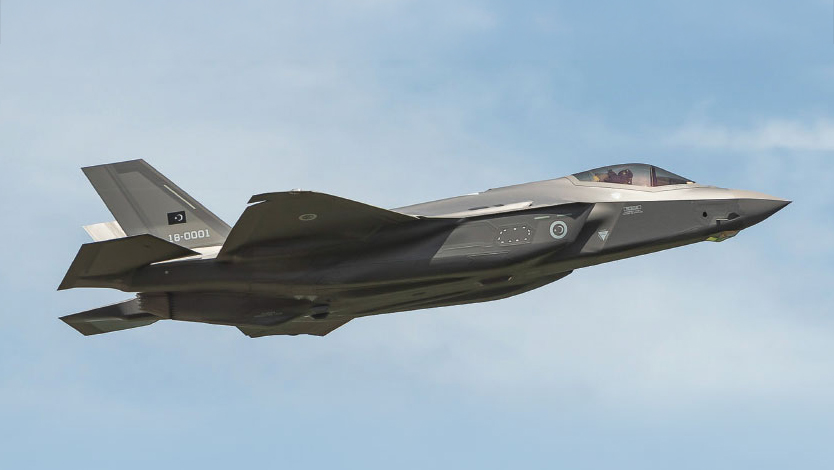After years of uncertainty and diplomatic hurdles, Turkey appears to be regaining hope in its efforts to acquire the coveted F-35 fifth-generation fighter jets from the United States.
On November 26, Turkish Minister of National Defense Yaşar Güler shared promising news during a session at the Plan and Budget Commission of the Grand National Assembly of Turkey, revealing that the US might be willing to deliver the F-35 jets to Turkey, provided ongoing diplomatic negotiations continue to progress.
Güler addressed the current status of Turkey’s pursuit of the F-35, saying, “We already have six F-35s over there.”
These aircraft, which Turkey had initially purchased, were never delivered after the US suspended Turkey’s participation in the F-35 Joint Strike Fighter Program in 2021.
The suspension followed Turkey’s controversial acquisition of the Russian S-400 missile defense system, which NATO and the US viewed as a serious security concern.

However, Güler noted that the US appears to be re-evaluating its stance. “Now that they’ve seen our progress with KAAN, their stance seems to be shifting. They’re indicating that they might be willing to deliver them. We’ve officially resubmitted our offer to buy the F-35.”
This marks a potential turning point in Turkey’s long-standing efforts to procure the F-35 aircraft. Turkey joined the F-35 program in 2007 as one of the supplier nations alongside the US, UK, Italy, the Netherlands, and other NATO members.
At the time, Ankara had planned to buy 100 Lockheed Martin F-35A Lightning II aircraft. However, tensions over Turkey’s acquisition of the S-400 system in 2019 led to its removal from the program.
In the face of this setback, Turkey has been focusing on modernizing its air force by developing both the KAAN fighter jet and the HURJET light combat aircraft.
Despite the optimistic signs, the prospect of Turkey’s full return to the F-35 program remains uncertain due to lingering geopolitical factors. While Güler confirmed that discussions with the US are ongoing, he cautioned that no concrete developments have yet emerged regarding Turkey’s re-entry into the program.
It remains to be seen whether Turkey can successfully rejoin the F-35 program or continue to rely on its own domestic advancements, including the KAAN fighter.
Meanwhile, Turkey has also scaled back its US$23 billion plan to acquire F-16 fighter jets from the United States, opting to cancel the purchase of 79 modernization kits for its existing fleet.
Earlier this year, Turkey had secured a deal to buy 40 F-16 fighter jets and 79 modernization kits after a lengthy negotiation process. However, Güler revealed that the modernization kits, originally intended to upgrade Turkey’s aging F-16s, would no longer be purchased.
He explained that Turkey was able to carry out the modernization in-house at its Turkish Aerospace Industries (TUSAS) facilities.
US Lifts Objections To Turkey’s Use Of S-400
In another development, Güler also addressed the sensitive issue of Turkey’s S-400 missile defense system, a point of contention between Ankara and Washington. According to the minister, the US has lifted its objections to Turkey’s use of the S-400 system.
“During our recent meetings [with the Americans], we rejected what they wanted from us in the context of the S-400. Now, the Americans have no objections in this regard,” Güler stated.
This marks a major shift in the US-Turkey defense relationship. The US had previously pressured Turkey to abandon the S-400 system, even offering alternative solutions.
Some reports suggested that Turkey’s return to the F-35 program could be contingent on not activating the S-400s or transferring them to a third party.
On the other hand, Russian Foreign Minister Sergey Lavrov has consistently reminded Turkey that the arms contract for the S-400 includes an end-user certificate, which prohibits Turkey from transferring the system without Moscow’s approval.
Meanwhile, Güler pointed out that Turkey’s purchase of the S-400 was driven by national defense needs after other countries failed to respond positively to Ankara’s requests.
Güler also reassured that the S-400 systems are ready for deployment and could be operational within 12 hours if required.
“It would take about 12 hours to deploy the system to a condition when we are able to use it,” he explained, adding that Turkey would only use the S-400 in the event of a “very high level of danger.”
- Contact the author at ashishmichel(at)gmail.com
- Follow EurAsian Times on Google News